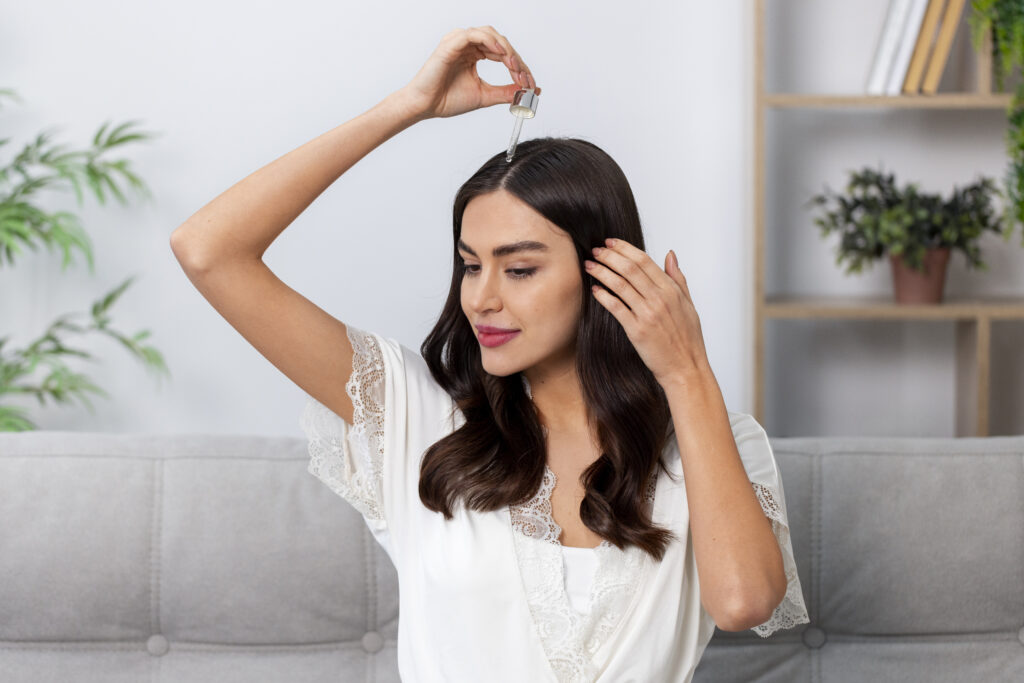The Role of Vitamins and Minerals in Preventing Hair Fall
Hair fall can be frustrating, whether it’s finding extra strands on your pillow, in the shower, or while combing your hair. While stress, pollution, and genetics are well-known causes, one of the most overlooked reasons for hair loss is nutritional deficiency.
Your hair, just like the rest of your body, needs the right balance of vitamins and minerals to stay healthy and strong. A lack of these essential nutrients can weaken hair roots, slow down growth, and even lead to excessive shedding.
Let’s explore the key vitamins and minerals that prevent hair fall, their food sources, and when it’s time to see a dermatologist.
Why Nutrients Are Important for Hair Health
Hair is mainly made of a protein called keratin. For keratin to form properly and for your scalp to stay nourished, your body depends on a steady supply of vitamins and minerals. These nutrients help by:
- Boosting hair follicle growth and repair
- Improving blood circulation to the scalp
- Producing sebum, the natural oil that keeps hair moisturized
- Protecting hair from oxidative stress and damage
Without them, hair can turn dull, brittle, and prone to falling out.
Essential Vitamins for Hair Fall Prevention
- Vitamin A – The Scalp Protector
Vitamin A supports cell growth and helps the scalp produce sebum, keeping hair hydrated.
Sources: Carrots, sweet potatoes, spinach, eggs
Tip: Avoid excess intake, as too much Vitamin A may trigger hair fall.
- B-Vitamins (Especially Biotin & B12) – The Growth Boosters
Biotin strengthens hair strands, while B12 helps deliver oxygen to the scalp, fueling follicle growth.
Sources: Eggs, nuts, whole grains, leafy greens
3. Vitamin C – The Antioxidant Shield
Vitamin C fights free radicals that damage hair follicles and also helps in collagen production, vital for strong hair.
• Sources: Citrus fruits, guava, strawberries, bell peppers
4. Vitamin D – The Follicle Activator
Low Vitamin D levels are strongly linked to alopecia and increased shedding.
• Sources: Sunlight, fortified dairy, mushrooms, fatty fish
- Vitamin E – The Circulation Booster
Vitamin E improves blood flow to the scalp and supports a healthy hair growth cycle.
Sources: Almonds, sunflower seeds, spinach, avocados
Important Minerals for Strong, Healthy Hair
- Iron – The Oxygen Carrier
Iron deficiency is one of the leading causes of hair fall, especially in women. Iron helps red blood cells carry oxygen to the roots of your hair.
- Sources: Spinach, red meat, lentils, fortified cereals
- Zinc – The Follicle Repairer
Zinc helps repair hair tissue and maintains scalp oil gland balance.
- Sources: Pumpkin seeds, chickpeas, oysters
- Selenium – The Follicle Protector
Selenium shields hair follicles from oxidative stress and helps in their healthy function.
- Sources: Brazil nuts, eggs, sunflower seeds
- Magnesium – The Inflammation Fighter
Magnesium supports protein synthesis and reduces scalp inflammation that can lead to hair thinning.
- Sources: Almonds, black beans, spinach, whole grains
Tips to Improve Hair Health Naturally
- Eat a balanced diet with fruits, vegetables, proteins, and whole grains
- Stay hydrated to maintain scalp and hair moisture
- Get tested for Vitamin D, B12, and Iron if you face chronic hair fall
- Avoid crash diets that cut out essential nutrients
- Seek professional help if hair fall continues despite dietary changes
Frequently Asked Questions (FAQs)
- Which vitamin deficiency causes the most hair fall?
Iron, Vitamin D, and Biotin deficiencies are among the most common culprits behind excessive shedding.
- Can biotin stop hair loss?
Biotin can improve hair strength if you’re deficient, but it won’t treat genetic or hormonal hair loss.
- How long do vitamins take to improve hair fall?
Results usually take 3–6 months of consistent dietary changes or supplementation.
- Are supplements better than diet for hair fall?
Diet should always come first. Supplements are helpful only if recommended after testing for deficiencies.
- When should I see a dermatologist for hair fall?
If you notice sudden, excessive, or patchy hair loss, it’s best to consult a dermatologist immediately.
Conclusion: Feed Your Hair, Consult Your Dermatologist
Vitamins and minerals are the fuel your hair needs to thrive. Eating a nutrient-rich diet can prevent hair fall, improve scalp health, and promote natural growth. However, if hair fall persists, it may not just be about diet — underlying medical issues, stress, or hormonal imbalances might be at play.
The smartest step is to combine healthy nutrition with expert care. A dermatologist can help identify the root cause, treat deficiencies, and recommend advanced treatments like GFC therapy, medications, or customized hair fall solutions.
Don’t let hair fall steal your confidence. Book a consultation with our dermatology clinic today and take the first step toward stronger, healthier, and fuller hair.

